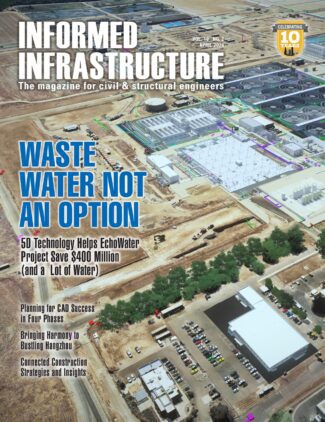Esri’s Interactive Mapping and Data Exploration Delivers 140 Spatial Analytics Tools and Functions into the Fabric User Experience
REDLANDS, Calif.— To meet the growing demand for spatial analytics, Esri is extending its long-standing strategic collaboration with Microsoft through a unified analytics platform powered by spatial capabilities. Microsoft Fabric, now in General Availability as announced today at Microsoft Ignite, will accelerate time to insights and reveal unexplored patterns, trends, and connections through the integration of spatial analytics from Esri’s ArcGIS software.
Data scientists, data engineers, business analysts, and their executive stakeholders demanding spatial analytics and visualization within Fabric will benefit greatly from the joint offering. Esri’s ArcGIS integration will allow data to flow across an organization, whether working from Microsoft OneLake, Microsoft Power BI, or their ArcGIS environment. Fabric users will be empowered with direct access to sophisticated spatial analytics tools and functions, and an extensive library of authoritative and curated spatial data, to produce interactive and intuitive visualizations and maps.
“Esri and Microsoft are reshaping how everyone works with data. Now data professionals will have direct access to core Esri capabilities inside of their Microsoft Fabric environment,” said Jack Dangermond, Esri president. “We are pleased to advance our important work with Microsoft and see the power of spatial insights unlocked for our shared customers.”
“Integration with Esri allows our Microsoft Fabric customers to gain valuable geospatial insights through access to their powerful spatial analysis technology,” said Arun Ulagaratchagan, Corporate Vice President of Azure Data, Microsoft.
The integration of ArcGIS with Fabric will be available in Q2 2024.
“Esri and Microsoft are key strategic partners to the Met Office,” said Dr. Niall Robinson, Head of Product Futures. “With the development of our next generation supercomputer from Microsoft our data volumes will grow exponentially. Continuing to help people make better decisions to stay safe and thrive will require an even greater use of ML/AI both within our organization and by our downstream consumers. The addition of Esri’s spatial analytics to Microsoft Fabric is an exciting new development with significant potential.”
To learn more about the new spatial analytics workload for Microsoft Fabric, visit go.esri.com/spatial-analytics-in-microsoft-fabric.
Microsoft Ignite 2023 and Fabric Resources:
- Watch the Microsoft Fabric ISV session at Ignite 2023: https://aka.ms/Ignite23BRK222H [aka.ms]
- Build ISV apps on Microsoft Fabric open platform blog: https://aka.ms/Fabric-ISV-Blog-Ignite23 [aka.ms]
- Microsoft Fabric General Availability blog : https://aka.ms/Fabric-Hero-Blog-Ignite23 [aka.ms]
- Join the Fabric community
- Sign up for the Microsoft Fabric free trial
About Esri
Esri, the global market leader in geographic information system (GIS) software, location intelligence, and mapping, helps customers unlock the full potential of data to improve operational and business results. Founded in 1969 in Redlands, California, USA, Esri software is deployed in hundreds of thousands of organizations globally, including Fortune 500 companies, government agencies, nonprofit institutions, and universities. Esri has regional offices, international distributors, and partners providing local support in over 100 countries on six continents. With its pioneering commitment to geospatial technology and analytics, Esri engineers the most innovative solutions that leverage a geographic approach to solving some of the world’s most complex problems by placing them in the crucial context of location. Visit us at esri.com.
Copyright © 2023 Esri. All rights reserved. Esri, the Esri globe logo, The Science of Where, esri.com, and @esri.com are trademarks, service marks, or registered marks of Esri in the United States, the European Community, or certain other jurisdictions. Other companies and products or services mentioned herein may be trademarks, service marks, or registered marks of their respective mark owners.

